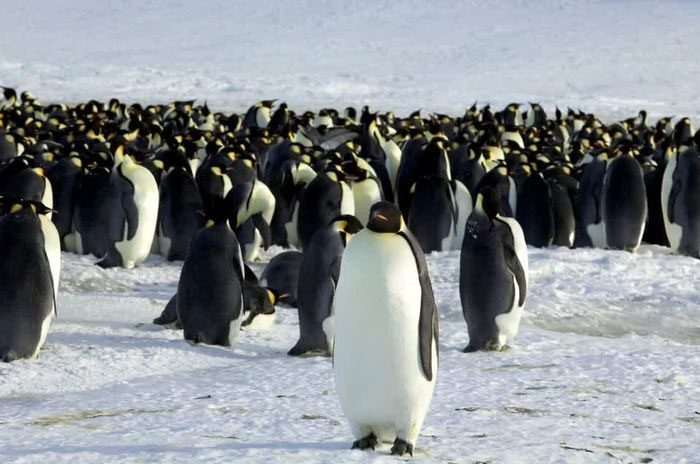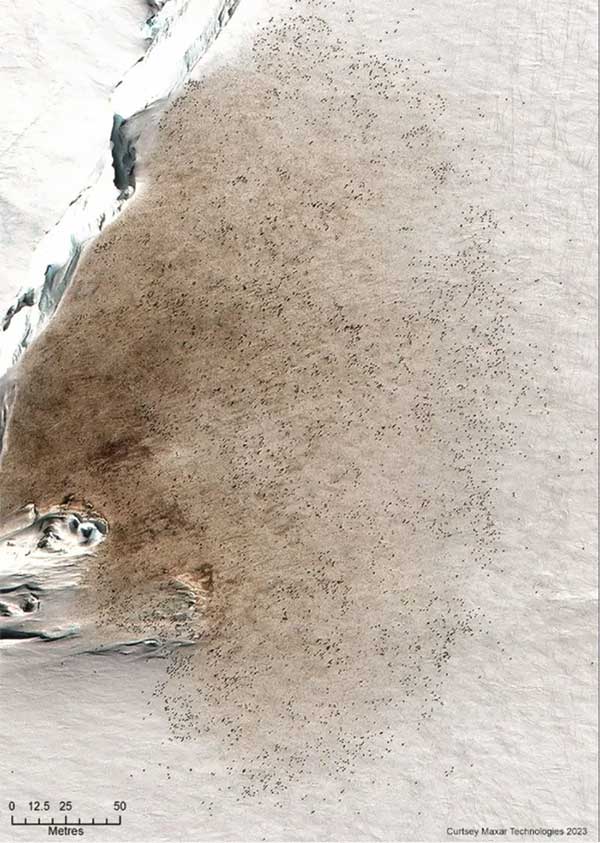The Emperor Penguin is the largest but least common species in Antarctica. Currently, their habitat is threatened due to melting ice.

Emperor penguin sighted at Dumont d’Urville, Antarctica. (Photo: Reuters).
According to The Guardian, four colonies of Emperor Penguins have been discovered in Antarctica after scientists detected their droppings in satellite images. Researchers believe this provides a nearly complete picture of the population of this species, as their habitat is threatened by the ongoing melting of ice.
A 2023 study indicated that the amount of sea ice in the Bellingshausen Sea (Antarctica) has reached a record low by the end of 2022. This could put thousands of young Emperor Penguins at risk.

Scientists identified the colonies of Emperor Penguins by analyzing their droppings through satellite images. (Photo: Maxar Technologies).
Dr. Peter Fretwell, a geospatial scientist from the British Antarctic Survey, utilized satellite imagery to explore and monitor the activities of the penguin colonies on the white ice and snow. The research, published in the Antarctic Science Journal, suggests that the known population of Emperor Penguins could be as high as 66 colonies.
“The newly identified locations describe gaps in the distribution of this iconic bird species. Most penguin colonies have fewer than 1,000 individuals, so discovering these new colonies does not significantly alter the overall population scale,” said Dr. Peter Fretwell.
The Emperor Penguin is a very rare sight in Antarctica. Currently, scientists estimate the population of this species to be around 600,000 individuals.
They largely depend on sea ice for breeding. Additionally, Emperor Penguins typically lay their eggs in May and June. The chicks hatch after about 65 days and require another six months to develop their feathers.
However, this cycle is under threat due to the significant decline in the extent of sea ice. Dr. Fretwell noted that about 30% of the Emperor Penguin population could be severely affected by melting sea ice since 2018.




















































